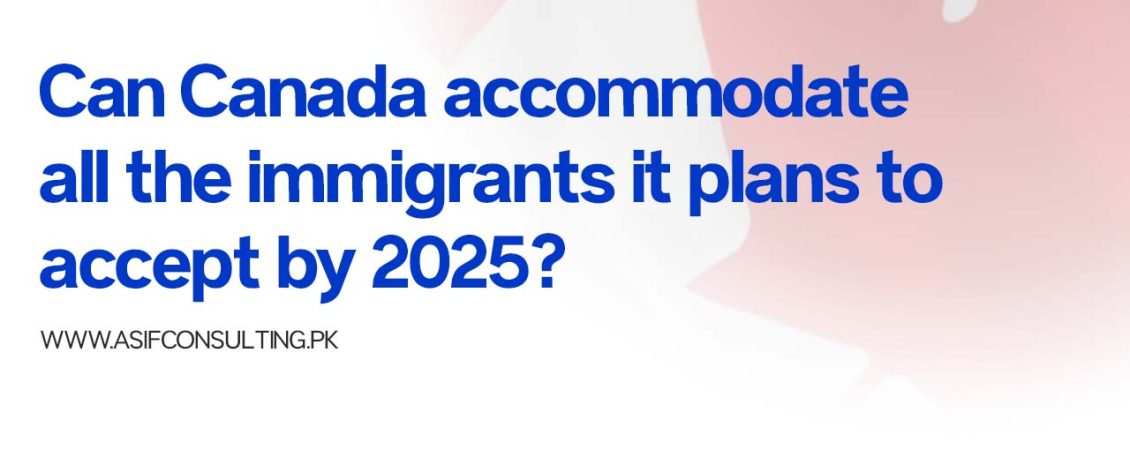Can Canada accommodate all the immigrants it plans to accept by 2025?

A comfortable life includes having a place to live. The development of enough housing for immigrants is a major concern for Canada, especially considering the government’s increased immigration goals until 2025:
In other words, these lofty goals are in place to help Canada make up for the deteriorating natural labor force caused by the country’s aging population and low fertility rate. In other words, Canada needs such high immigration targets to support the country’s labor market and guarantee the health of the overall economy.
The concern that Canada might not be able to provide for some of the most fundamental needs that an influx of newcomers would have, however, is the other side of the country’s need for immigrants. Many are worried that Canada may find it difficult to accommodate a large number of immigrants it plans to welcome between now and 2025. The ability of the country to accommodate immigrants in the event that they decide to create a new life here is another issue that worries immigrants themselves.
Both immigrants and native-born citizens are concerned that Canada won’t be able to meet the housing needs of the hundreds of thousands of immigrants it hopes to welcome in the next few years.
Anxiety over this matter has persisted for a while, as evidenced by tales like that of Palestinian refugee Aziza Abu Sirdana. Abu Sirdana’s need for someone to acknowledge her housing struggle came to a head at a meeting with the federal administration in early November 2022.
Happily, a family in Ottawa eventually responded to Abu Sirdana’s plight later that month and permitted the Gaza-born refugee to move in with them, according to a follow-up report released by CTV on November 29.
Nonetheless, there are still many uncertainties and worries about Canada’s capacity to accommodate an expanding number of new immigrants. In fact, a CBC News article from November stated that the persistent housing crisis in the nation and rising immigration “targets” have “stoked anxiety over where all these new citizens will make their homes.”
What is Canada doing to work towards solving this housing problem?
An effective first step towards resolving the housing issue that now afflicts this nation is efforts like the financial commitment made in Ontario last year.
Recently, some non-Canadians who wanted to buy particular residential real estate were subject to a two-year purchase ban enforced by the federal government of Canada. This action, which prohibits non-Canadian citizens or permanent residents from purchasing residential real estate in Canada, aims to lower the cost of housing in this nation for both immigrants and naturalized Canadians. In the next few years, more new Canadians will be able to own homes in Canada thanks to this purchase ban and the money invested by the Ontario government.
Note: Foreign workers and international students studying in Canada are exempt from the buying ban.
In the end, even though Canada won’t be able to immediately gauge the full effects of these housing expenditures and activities, time will soon tell if such measures as those stated above are sufficient to meet Canada’s ambitious immigration ambitions between now and 2025.
We, as immigration consultants, are always available to help our deserving clients with their questions about immigration and travel. We, as Canadian immigration specialists, will keep you informed of any changes to the law. Stay in touch with us, therefore.With Consulting Services, Global Citizenship, Business Immigration, Skilled Immigration, Study Visas, Visit Visas, and Scholarships, our skilled Immigration Consultants can assist you. To receive the most recent immigration updates, stay in touch with us.
For better counsel, call us at 051-8314775 or +923338888470.
